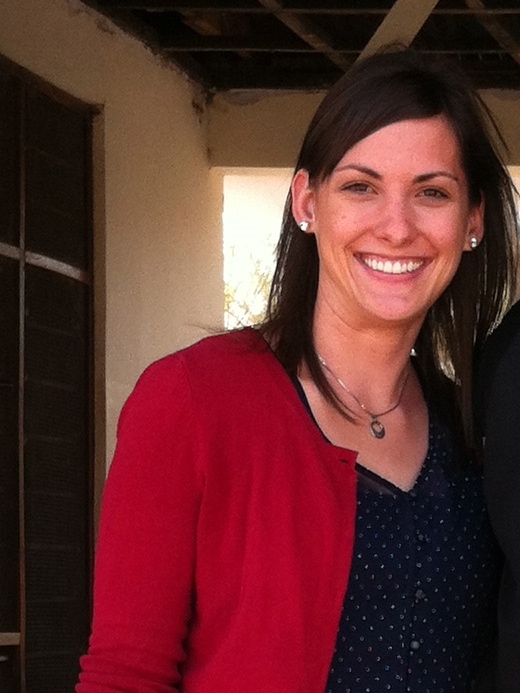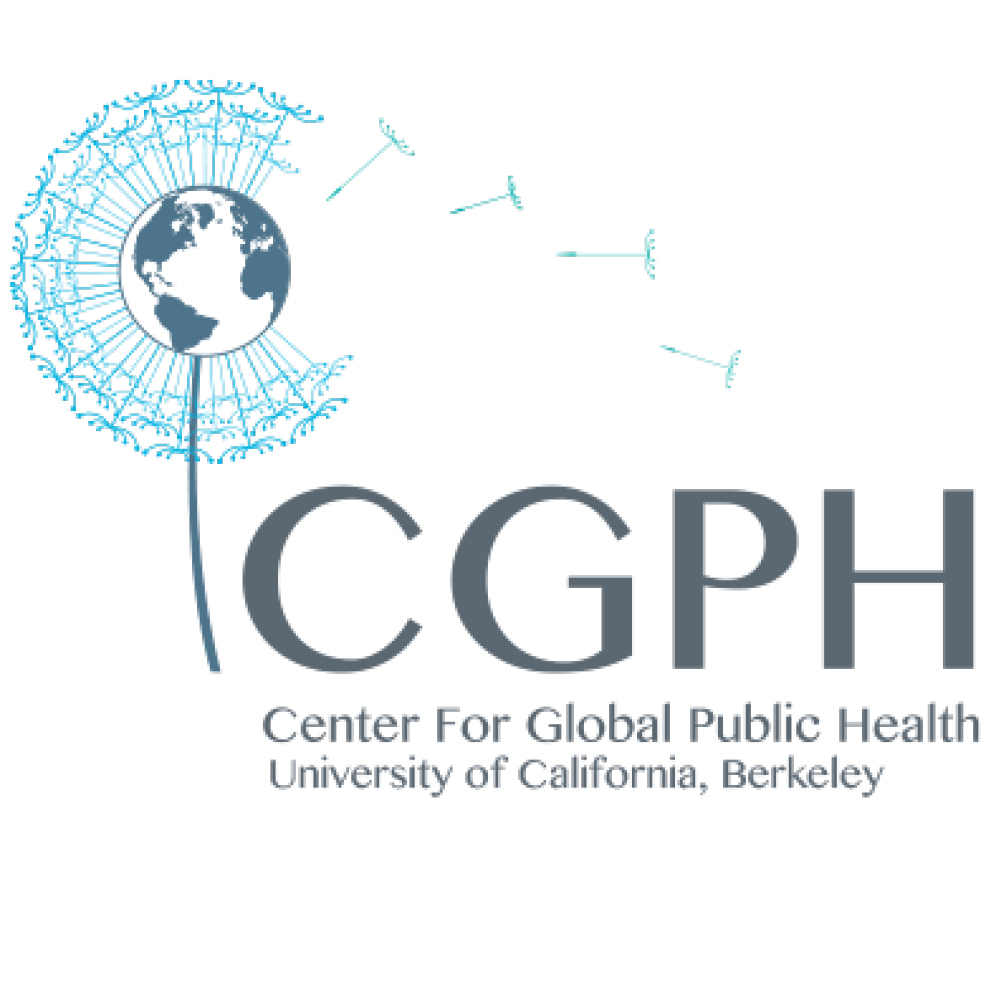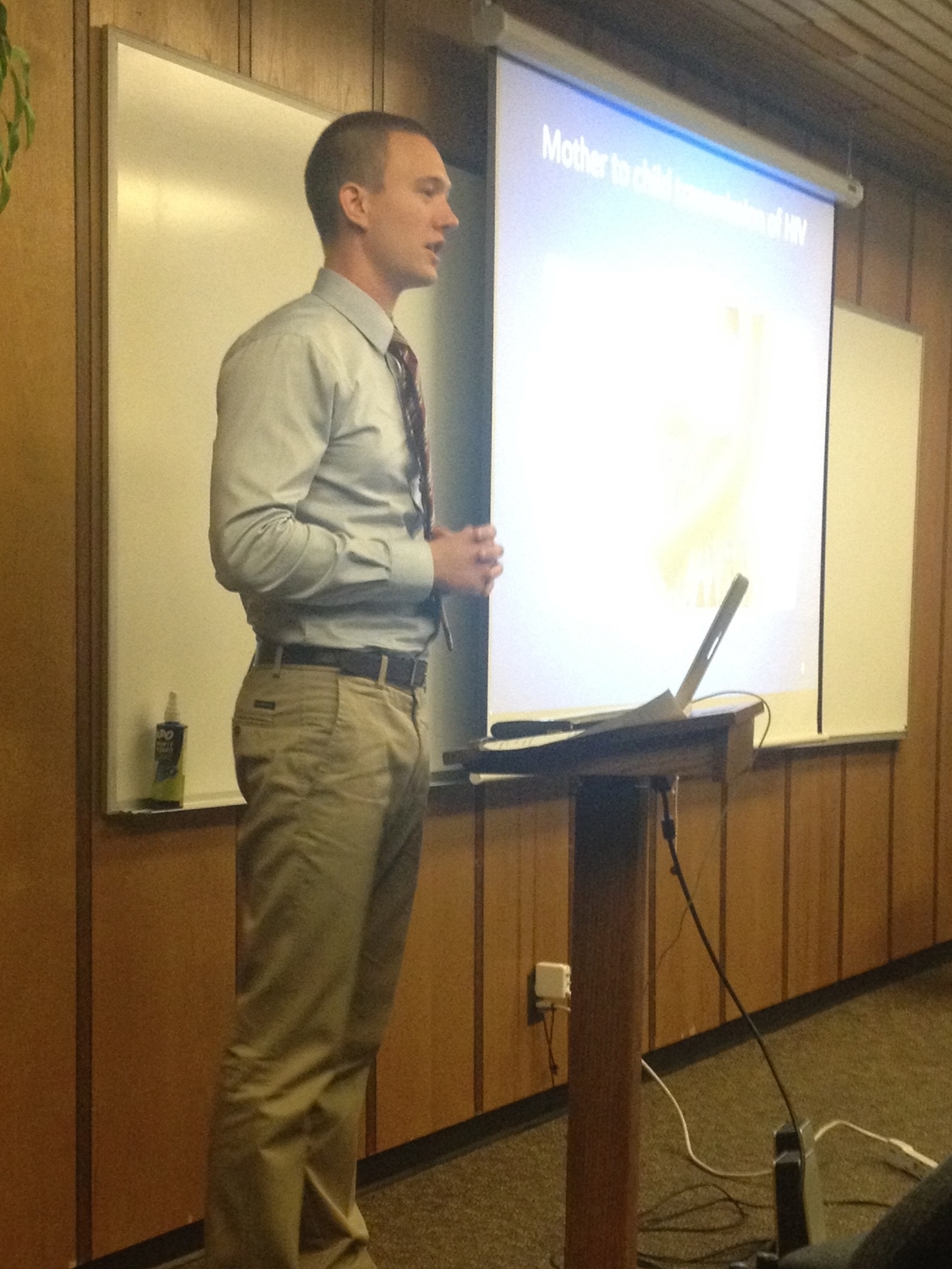Congratulations to graduate students Nancy Czaicki and Chris Andersen, UC Berkeley Center for Global Public Health Fellows. Nancy and Chris presented their research this Thursday at the 2014 Global Health Research Fall Student Symposium; Nancy's talk was "Incentives for ART adherence among people living with HIV in Tanzania: mechanisms of action," and Chris presented "Loss to follow-up among Option B+ patients in Shinyanga, Tanzania." Bravo!
Using incentives to increase demand for influenza vaccine
Although the Centers for Disease Control (CDC) recommends that everyone 6 months of age and older gets a flu vaccine every season, many people don't get vaccinated. Here's what Safeway is doing about it: offering a coupon for 10% off of your next shopping trip in exchange for getting vaccinated. From a public health viewpoint, this might be a very effective strategy to nudge people to get a vaccine for a disease they think they aren't susceptible to or can easily recover from, especially because the influenza vaccine best protects a population when a critical proportion of people are vaccinated (a concept called "herd immunity", explained in this nice video from Upworthy). The AARP speculates that retailers are willing to offer incentives like this one because of attractive profit margins combined with the increased likelihood that you'll buy other items in the store. Financial incentives such as these are known to increase the demand for a variety of health services, including vaccination, but the jury is still out about whether this strategy can achieve real impact on influenza transmission rates. What do you think?
New papers from our research group
Very pleased to share two new papers from our research group that were published this month. The first, published in AIDS & Behavior, was led by Amanda Wheeler Singer about the detrimental relationship between food insecurity and adherence to HIV antiretroviral therapy. The second, published in PloS One, describes the unmet need for family planning among women with a recent birth in Zimbabwe.
Do the poor waste cash transfers on booze and cigarettes? No. →
A great World Bank blog post by Senior Economist David Evans on whether cash transfers given to the poor are wasted on alcohol and cigarettes. After reviewing 44 estimates of spending on alcohol and tobacco from 19 studies and 13 interventions (including Oportunidades/PROGRESA), David finds that the vast majority of estimates (82%) are negative. He concludes: "We should stop worrying that the poor are going to spend (or “waste”) their transfer income on alcohol and tobacco. They aren’t." This is good news for those of us interested in the overwhelmingly positive effects of cash transfers on health and welfare, including their potential for HIV prevention. However, this analysis was limited to alcohol and tobacco expenditures among households who were beneficiaries of government-run anti-poverty programs. In the HIV/AIDS realm, a study by Kohler and Thornton (2012) found that Malawian men given cash transfers were more likely to engage in risky sex shortly after receiving the transfer, although this finding has luckily not been replicated in other studies.
Is cash better than in-kind aid? Let's find out. →
In-kind Aid vs cash transfers. Source: Niehaus, presentation at Center for Global Development, 2014
Next time you donate money to buy a poor family a cow or give a seamstress a loan for starting a small business, ask yourself the following question: would it be more effective to simply give cash? Amanda Glassman, Director of Global Health Policy and Senior Fellow at the Center for Global Development, argues in this blog post that in many cases, cash is cheaper and more effective than in-kind aid. She suggests that funders should find out if their in-kind assistance does more good than cash at achieving their anti-poverty objectives, noting the success of charities like GiveDirectly. Whether the "cash is king" mantra holds in the HIV/AIDS context is the focus of our ongoing study in Tanzania.
Beyond medicine: Delivering on the promise of food security in the context of HIV/AIDS →
Suneetha Kadiyala, a Senior Lecturer at the London School of Hygiene & Tropical Medicine, and Rahul Rawat, a Research Fellow at the International Food Policy Research Institute (IFPRI), describe the dangerous interaction between food insecurity and HIV/AIDS in this excellent Scientific American article. Suneetha and Rahul highlight their research on food insecurity among people living with HIV infection in Uganda, including an analysis we conducted demonstrating that poor diet quality is associated with low CD4 count and predicts mortality among antiretroviral therapy-naive HIV-positive adults. They also argue for livelihood programs which have the potential to sustainably support care and treatment programs and mitigate the negative household and community-level impacts of HIV/AIDS.
Cash, Food, or Vouchers? →
What's the best way to reduce hunger, improve food security, and improve a variety of other health and welfare outcomes? Despite decades of debate about the relative merits of food, cash, or voucher assistance, the most rigorous study ever conducted on the subject finds that there is no one "right" transfer modality. Led by the International Food Policy Research Institute (IFPRI), the randomized experiment was conducted in Ecuador, Uganda, Niger, and Yemen from 2010–2012 and compared the effects of food baskets, cash transfers, and supermarket vouchers. The bottoms line: there's no one-size-fits-all approach to aid.
Researchers found that the relative effectiveness of different modalities depends heavily on contextual factors such as the severity of food insecurity and the thickness of markets for grains and other foods. Furthermore, in three countries cash had the largest impact on dietary diversity, whereas in two countries food had the largest impact on calories available for consumption. The one universal finding: Cash assistance was always significantly more cost-effective to deliver. Watch the IFPRI-WFP Seminar on the study here.
World Food Programme Support for Vulnerable Families in Zimbabwe →
Read a short report about nutritional support provided by the World Food Programme (WFP) to AIDS-affected and other vulnerable families in Zimbabwe. After nutritional assessment, clients at local clinics meeting the criteria for assistance are referred to WFP and their implementing partners and receive Super Cereal, a nutritious fortified blend of maize meal, soya protein and micronutrients. They also get a monthly household ration of maize meal, vegetable oil and pulses. Some types of food assistance programs, similar to this one in Zimbabwe, have been shown to increase adherence to antiretroviral therapy among people living with HIV infection. Read more about WFP's HIV/AIDS-related programs here.








